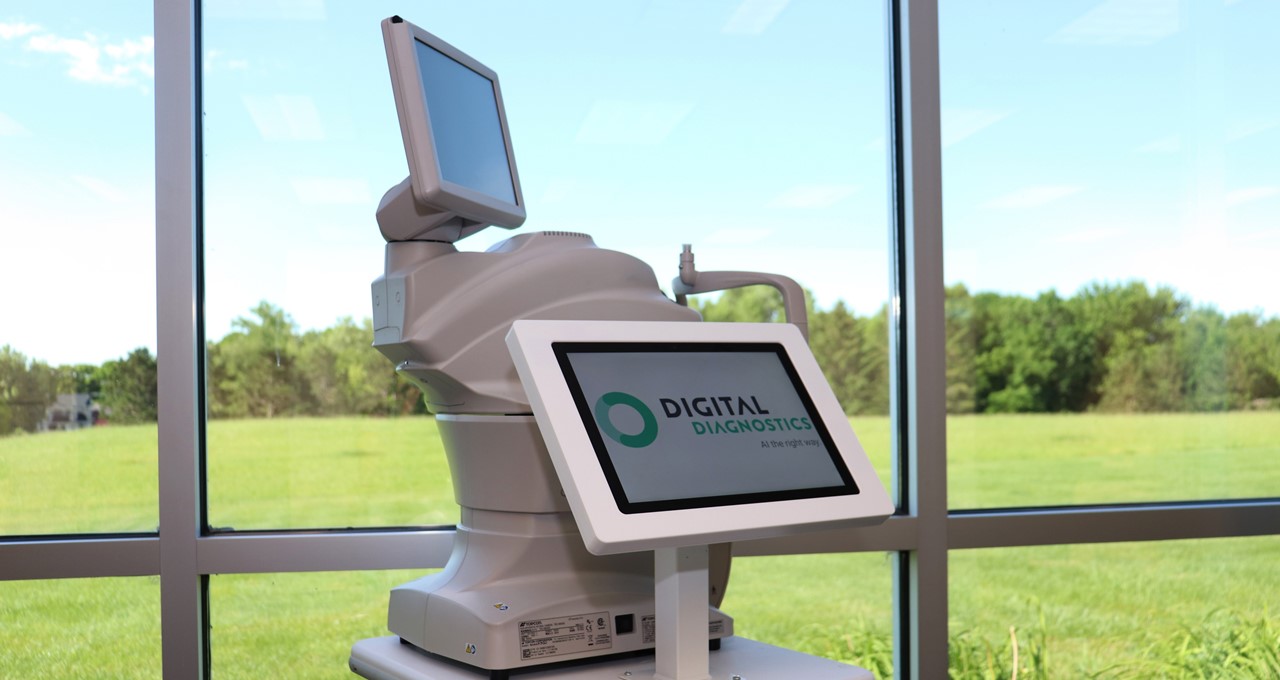Every year, 60,000 people go blind from diabetic retinopathy, a condition caused by damage to the blood vessels in the eye and a risk factor of high blood sugar levels.
Digital Diagnostics, a software-defined AI medical imaging company formerly known as IDx, is working to help those people retain their vision, using NVIDIA technology to do so.
The startup was founded a decade ago by Michael Abramoff, a retinal surgeon with a Ph.D. in computer science. While training as a surgeon, Abramoff often saw patients with diabetic retinopathy, or DR, that had progressed too far to be treated effectively, leading to permanent vision loss.
With the mission of increasing access to and quality of DR diagnosis, as well as decreasing its cost, Abramoff and his team have created an AI-based solution.
The company’s product, IDx-DR, takes images of the back of the eye, analyzes them and provides a diagnosis within minutes — referring the patient to a specialist for treatment if a more than mild case is detected.
The system is optimized on NVIDIA GPUs and its deep learning pipeline was built using the NVIDIA cuDNN library for high-performance GPU-accelerated operations. Training occurs using Amazon EC2 P3 instances featuring NVIDIA V100 Tensor Core GPUs and is based on images of DR cases confirmed by retinal specialists.
IDx-DR enables diagnostic tests to be completed in easily accessible settings like drugstores or primary care providers’ offices, rather than only at ophthalmology clinics, said John Bertrand, CEO at Digital Diagnostics.
“Moving care to locations the patient is already visiting improves access and avoids extra visits that overwhelm specialty physician schedules,” he said. “Patients avoid an extra copay and don’t have to take time off work for a second appointment.”
Autonomous, Not Just Assistive
“There are lots of good AI products specifically created to assist physicians and increase the detection rate of finding an abnormality,” said Bertrand. “But to allow physicians to practice to the top of their license, and reduce the costs of these low complexity tests, you need to use autonomous AI,” he said.
IDx-DR is the first FDA-cleared autonomous AI system — meaning that while the FDA has cleared many AI-based applications, IDx-DR was the first that doesn’t require physician oversight.
Clinical trials using IDx-DR consisted of machine operators who didn’t have prior experience taking retinal photographs, simulating the way the product would be used in the real world, according to Bertrand.
“Anyone with a high school diploma can perform the exam,” he said.
The platform has been deployed in more than 20 sites across the U.S., including Blessing Health System, in Illinois, where family medicine doctor Tim Beth said, “Digital Diagnostics has done well in developing an algorithm that can detect the possibility of early disease. We would be missing patients if we didn’t use IDx-DR.”
In addition to DR, Digital Diagnostics has created prototypes for products that diagnose glaucoma and age-related macular degeneration. The company is also looking to provide solutions for healthcare issues beyond eye-related conditions, including those related to the skin, nose and throat.
Stay up to date with the latest healthcare news from NVIDIA.
Digital Diagnostics is a Premier member of NVIDIA Inception, a program that supports AI startups with go-to-market support, expertise and technology.
